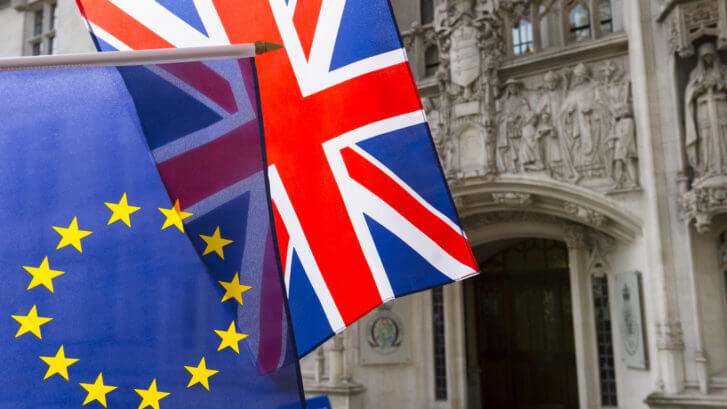BCL partner, John Binns discusses the potential impact Brexit could have on the UK criminal justice system.
Writing for Law 360, he looks at how the U.K.’s participation in the EU’s Justice and Home Affairs measures is subject to a specially negotiated “opt-in” mechanism. Under special protocols to the main EU treaty, the U.K. is not subject to such measures unless it “opts in” to them.
Below is a short excerpt from his article*
Among the many potential impacts of the U.K.’s withdrawal from the EU, the end of the various current arrangements for cooperation in criminal justice, or internal security, matters has attracted relatively little attention in the press. Those involved in such arrangements have raised significant concerns, however, which are only partly met by the recent publication of the 585-page draft withdrawal agreement, or DWA, and the 7-page outline of the political declaration, or OPD, that accompanies it.
Background
By way of background, the U.K.’s participation in the EU’s Justice and Home Affairs measures is subject to a specially negotiated “opt-in” mechanism. Under special protocols to the main EU treaty, the U.K. is not subject to such measures unless it “opts in” to them.
Despite some domestic controversy, the U.K. has opted in to most of these measures, notably including the European Arrest Warrant scheme, various databases of information held for the purposes of criminal investigations, joint investigation teams for investigations that concern two or more EU states, and two institutions, Europol and Eurojust, which facilitate cooperation between EU police and prosecutors respectively.
To read the full article simply click here.
*This article was first published on the Law 360 website (Published: 17th January 2019). For further information please visit www.law360.com.
Authors:
John Binns is a partner at BCL specialising in all aspects of business crime, with a particular interest in confiscation, civil recovery and money laundering under the Proceeds of Crime Act 2002 (“POCA”). He has particular expertise in the myriad legal provisions on anti-money laundering (“AML”) requirements in the regulated sector under the Money Laundering Regulations (“MLR”), civil recovery and confiscation of the proceeds of crime, and criminal offences of money laundering under POCA, as well as related areas such as financial sanctions. He advises businesses (inside and outside the regulated sector) on AML policies and procedures generally, as well as particular risks that may arise under the MLR, POCA, and sanctions laws, including advice on the submission of Suspicious Activity Reports and consent requests. He regularly represents individuals and businesses in connection with confiscation, property freezing and restraint orders, including in relation to applications to defend, discharge or vary such orders.

